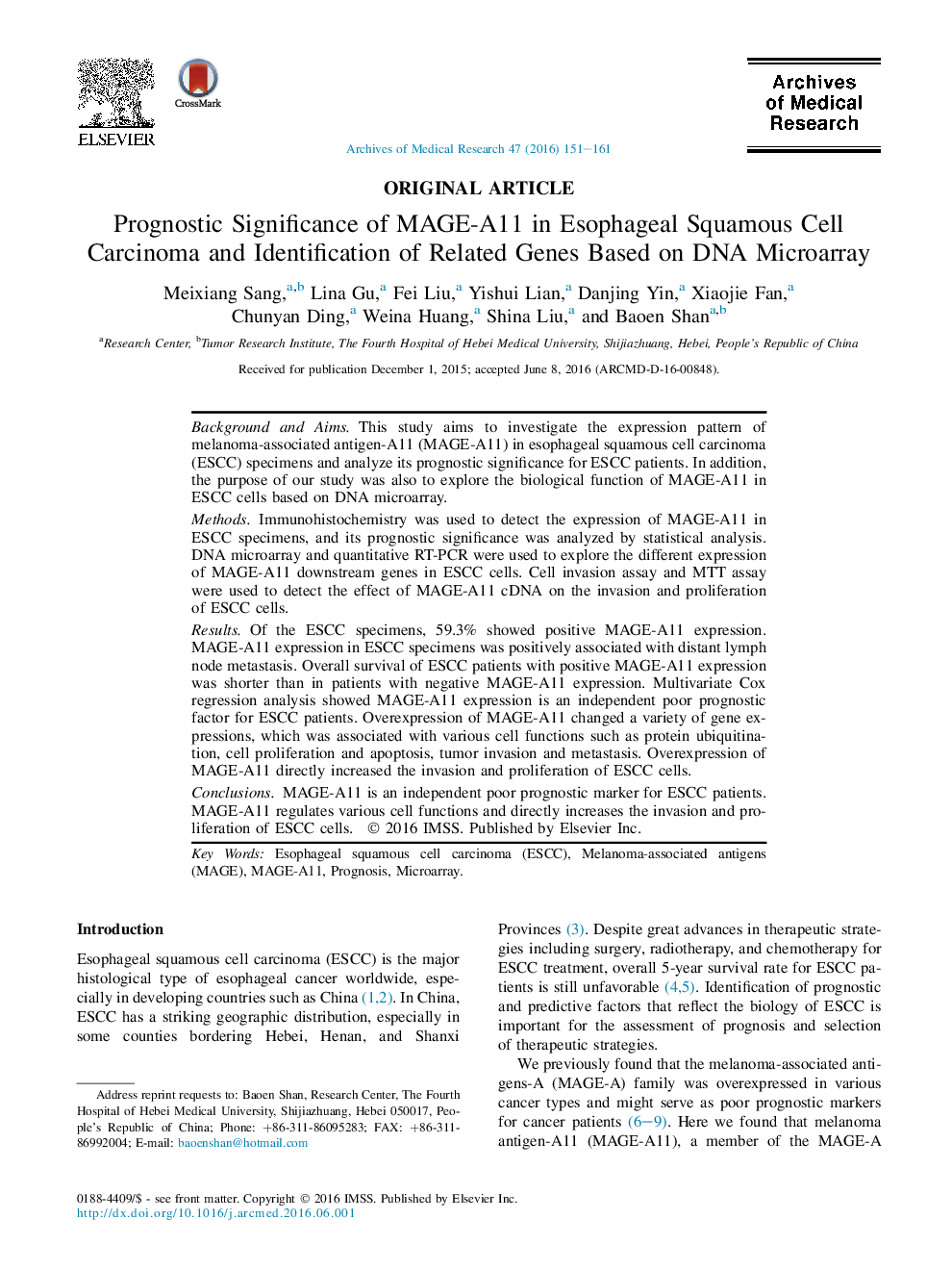| Article ID | Journal | Published Year | Pages | File Type |
|---|---|---|---|---|
| 3446298 | Archives of Medical Research | 2016 | 11 Pages |
Background and AimsThis study aims to investigate the expression pattern of melanoma-associated antigen-A11 (MAGE-A11) in esophageal squamous cell carcinoma (ESCC) specimens and analyze its prognostic significance for ESCC patients. In addition, the purpose of our study was also to explore the biological function of MAGE-A11 in ESCC cells based on DNA microarray.MethodsImmunohistochemistry was used to detect the expression of MAGE-A11 in ESCC specimens, and its prognostic significance was analyzed by statistical analysis. DNA microarray and quantitative RT-PCR were used to explore the different expression of MAGE-A11 downstream genes in ESCC cells. Cell invasion assay and MTT assay were used to detect the effect of MAGE-A11 cDNA on the invasion and proliferation of ESCC cells.ResultsOf the ESCC specimens, 59.3% showed positive MAGE-A11 expression. MAGE-A11 expression in ESCC specimens was positively associated with distant lymph node metastasis. Overall survival of ESCC patients with positive MAGE-A11 expression was shorter than in patients with negative MAGE-A11 expression. Multivariate Cox regression analysis showed MAGE-A11 expression is an independent poor prognostic factor for ESCC patients. Overexpression of MAGE-A11 changed a variety of gene expressions, which was associated with various cell functions such as protein ubiquitination, cell proliferation and apoptosis, tumor invasion and metastasis. Overexpression of MAGE-A11 directly increased the invasion and proliferation of ESCC cells.ConclusionsMAGE-A11 is an independent poor prognostic marker for ESCC patients. MAGE-A11 regulates various cell functions and directly increases the invasion and proliferation of ESCC cells.
